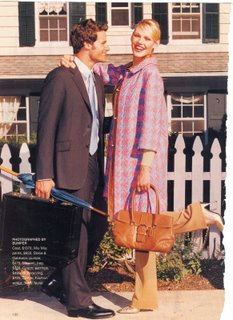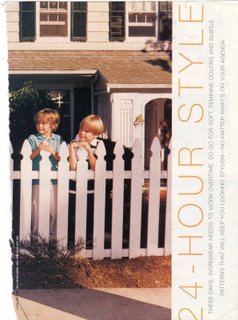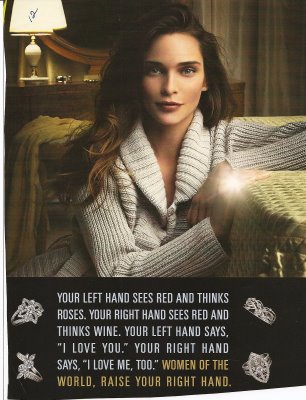I LOVE this image. It’s a fashion spread.


Question:
Who’s taking care of those little tow-headed boys behind the white picket fence when both mommy and daddy go to work?
I use this picture to talk about the way in which middle- and upper-class women are “getting equal” with men by transferring their caretaking responsibilities to less privileged women… who are, as in this ad, invisible.




